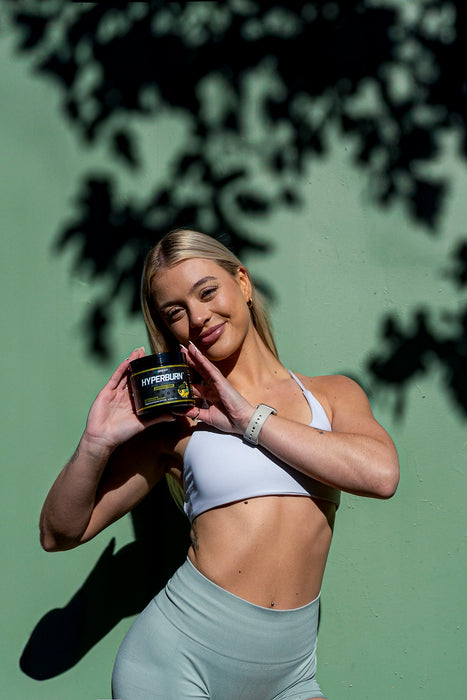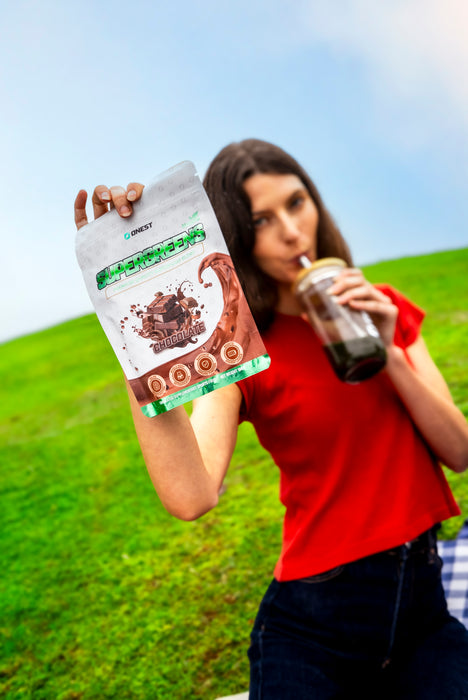CAFFEINE-FREE ENERGY
If you’re on your third cup of coffee for the day and you’re still feeling half asleep it may be time to support your energy levels from a different avenue. When you’re leading a busy lifestyle, there are bound to be times when you feel tired, however, if your natural reaction is to reach for yet another coffee, energy drink or sugary snack, you may be creating a spike and crash effect, leaving you feeling more tired than before. This is a viscous cycle, we know! The good news is that you can put your coffee cup down, we have got some long term, caffeine-free solutions that will not only give you an energy boost but help you in other ways too:
Here are our favourite caffeine-free alternatives:
1. Peppermint
Peppermint is an incredible source of energy as is it encourages an increase of oxygen to the brain, making you more alert, refreshed and awake. There are a few ways you can utilise peppermint for energy; you can sniff the essential oil or rub it on to your temples, you can also sip peppermint tea or add the fresh leaves in to water or salads. In addition to being an incredible energy booster, peppermint supports digestion, focus, memory recall and can reduce bloating.
2. B Vitamins
These water-soluble vitamins are great for energy as they support your thyroid as well as maintaining healthy blood cells. In addition to giving us an energy hit, B Vitamins aid in metabolic function and mood. Your body doesn’t store B vitamins in the body, and levels of the vitamin are easily depleted through times of heightened stress, so it’s essential that you stay topped via food and supplementation. Our favourite sources of B vitamins are organic eggs, red meat, legumes and whole grains. If you do not consume meat, then supplementing with a B12 supplement is essential. If you’re concerned about your energy levels, ensuring you get enough B vitamins could be enough to solve the issue.
3. Adaptogens
Adaptogens are non-toxic plants that help ease the effects of stress and fatigue. Adaptogens are known to help the body better cope with stress by balancing hormones, boosting energy levels and supporting the immune system. When taken long term, adaptogens assist the body’s central response system to adapt to stressors and produce fewer stress hormones, such as cortisol. Unlike caffeine, these herbs are non-habit forming and don’t tend to overstimulate the body. The best energy supporting adaptogens are ginseng, maca and Ashwagandha.
4. Maca
Tonifying and supporting to the endocrine system, Maca delivers abundant energy, promotes a good mood, and is balancing to the nervous system. It is also incredibly high in vitamins and minerals such as iron which support energy as well.
5. Ginseng
The root contains an abundance of nutrients, including antioxidants, vitamins, and minerals. Its active component called ginsenosides are often credited for the root’s energy- and stamina-boosting traits. Ginsenosides affect the nervous, cardiovascular, and endocrine systems, improve stress function, immune response, stamina, and energy.
6. Ashwagandha
As ashwagandha has beneficial properties similar to other ginsengs, it is often referred to as Indian ginseng, even though the two types of plants are not related. The root of ashwagandha contains withanolides, a group of naturally occurring compounds that have anti-inflammatory properties. Studies also show that this plant reduces stress and anxiety whilst balancing hormones to boost energy naturally.
7. Take home message
If you are constantly tired and you have addressed the important players such as sleep and stress, it’s always worth thinking about your diet and making some changes. Hydration, systemic inflammation, low iron levels, Vitamin B and D deficiencies, as well as imbalanced hormones, can all lead to fatigue. If you’ve addressed those points, try boosting your energy in a natural way, by implementing some of the above tips.






